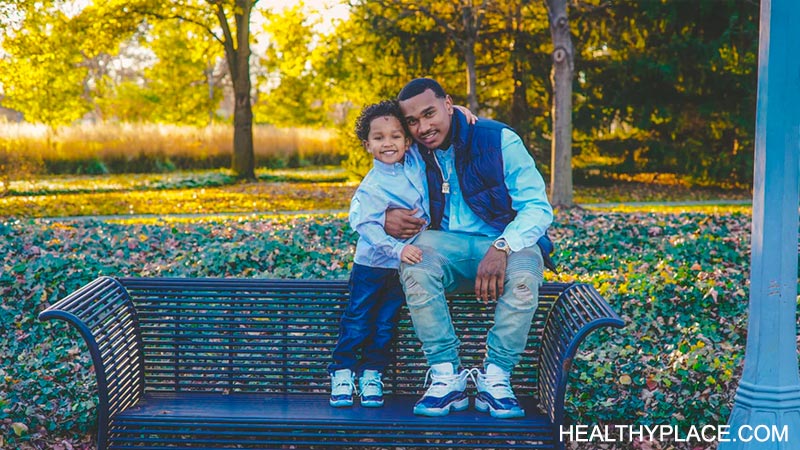Parent Coach or Counseling: Which is Best for You?

A parent coach or parent counseling are two different sources of help and support for parents. Despite how diaper commercials make it appear, parenting isn’t always easy. In fact, parenting can be downright hard, grueling and frustrating. Getting some support can help you revel in the joys of parenting. It can also help you handle the not-so-joyful moments with greater ease. The information below will help you decide whether parent coaching or counseling is a better fit for and your family.
What Is a Parenting Coach?
A parenting coach is like a consultant. They assist in building good parenting skills to handle issues requested by the parents ("Common Parenting Issues and How to Deal with Them"). In many cases, parenting coaches are people who have been trained and are certified to provide assistance to one or both parents. A coach is skilled in empowering parents to successfully raise their children.
In working with a coach, moms and dads develop and solidify their parenting philosophy. They form clear and realistic parenting goals and define their values. In working with the coach to articulate what’s important to them, parents can develop their unique approach to raising their kids. The coach doesn’t dictate values and beliefs but instead guides parents as they create their own purpose and approach.
A child’s behavior issues are often what leads parents to seek a parenting coach. Coaches also:
- Help during difficult times
- Help address stress management and parental self-care
- Suggest activities to foster healthy child development at all stages
- Answer questions and provide information
- Help make plans to address practical issues such as after-school childcare
- Assist with creating a calm, peaceful atmosphere in the home
- Enhance relationships
- Teach parents to increase children’s responsibilities
- Foster a climate of respect
- Provide parents tools to reduce children’s bickering and whining
Through asking questions and listening to answers, parenting coaches can provide parents with valuable insights into how to change their child’s behaviors. These professional consultants teach problem-solving skills so parents can effectively deal with new issues in the future.
Parent coaches provide tools, ideas, and support to facilitate positive change. They don’t, however, provide treatment for deeper issues. While they can help with behavior problems, they can’t address mental health issues like ADHD or oppositional defiant disorder. If your child is facing anxiety, depression, or other mental illnesses, you might want to consider parenting counseling instead.
Parenting Counseling: Who Is it For?
Parenting counseling, sometimes called parenting therapy, is like parent coaching in that it offers parents guidance, tools, and information to help them raise healthy, high functioning kids. Also like coaching, counseling is a short-term service whose intention is to equip parents with the skills they need to go forward with confidence.
Parenting counselors work with one or both parents, parents and the child together, or the whole family, depending on the specific issue and the family’s needs and goals. During counseling sessions, therapists help parents set goals and create action plans, build communication and problem-solving skills.
Counselors work with parents on a deeper level than do parent coaches. Parenting counselors process problems, including mental illness and non-diagnosable mental health struggles. Because of this, working with a parenting counselor will include talk therapy.
You might consider parenting counseling if you are facing challenges such as:
- Ongoing family conflict
- A child with developmental, physical, or mental health problems
- Your own mental health struggles
- Postpartum depression
- Parent or child self-esteem difficulties
- Trauma
- Domestic violence
- Substance use (parent or child/teen)
- Extreme or prolonged stress (parent or child/teen)
- Major life changes
- Loss
- Anything interfering in your ability to parent your child
A parenting counselor will help you address these issues and create a treatment plan to help you build the tools you need to move past what’s blocking you.
Which is Best for You: Parenting Coach or Counseling?
Both forms of parent support can be helpful. Which one is best for you depends on your goals and purpose in working with someone. Use these summaries to help you decide which is the right fit.
Parenting Coaching
- Assists in building a practical skillset, a toolbox of tactics
- Addresses child behavior and other everyday problems
- Focuses on relationship strengthening
- Emphasis is on practical problems and solutions
Parenting Counseling
- Works on skill-building as well as a treatment plan for mental health issues
- Explores parents’ personal issues and how they impact parenting
- Focuses on overcoming difficulties that interfere in family life
Consider why you are seeking parenting help and what you’d like to gain from it. Your answers will point you to either a parenting coach or to parenting counseling. Either way, you’ll be headed in the right direction toward a healthier, happier home life for both parents and children.
See Also:
APA Reference
Peterson, T.
(2022, January 11). Parent Coach or Counseling: Which is Best for You?, HealthyPlace. Retrieved
on 2025, November 10 from https://www.healthyplace.com/parenting/parenting-help/parent-coach-or-counseling-which-is-best-for-you








